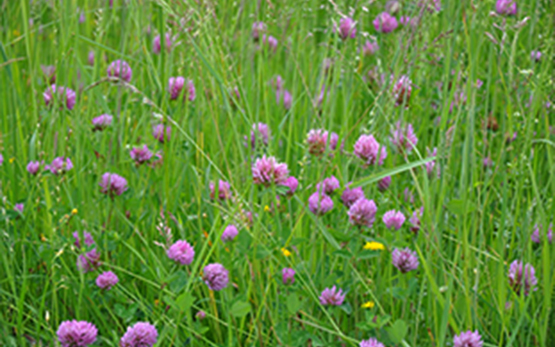Plant populations constitute an important component of functional biodiversity in grassland ecosystems. They are formed by the complex interaction of the genetic traits of individual plants with environmental factors such as management, nutrients and harmful substances, as well as beneficial and pathogenic microorganisms.
Knowledge of the genetic traits of individual plants and populations allows us on the one hand to select plants that are optimally adapted to specific environmental conditions, and on the other to better understand the function of plants in their habitats.
The aims of our research are:
- The molecular-genetic characterisation of the interaction between forage plants and associated microorganisms;
- The development of molecular markers as a basis for the marker-supported breeding of forage plants;
- The molecular-genetic characterisation of the genetic diversity of plant populations in different habitats as a basis for the breeding and preservation of genetic diversity.






